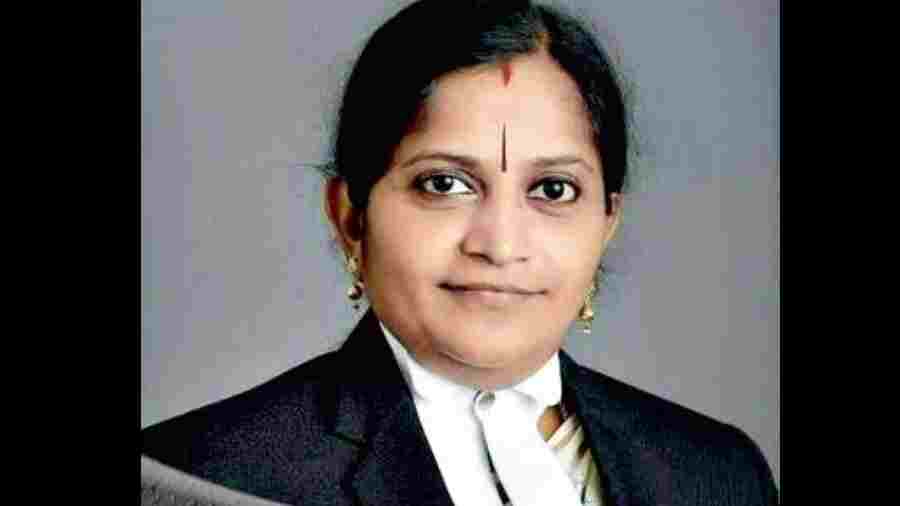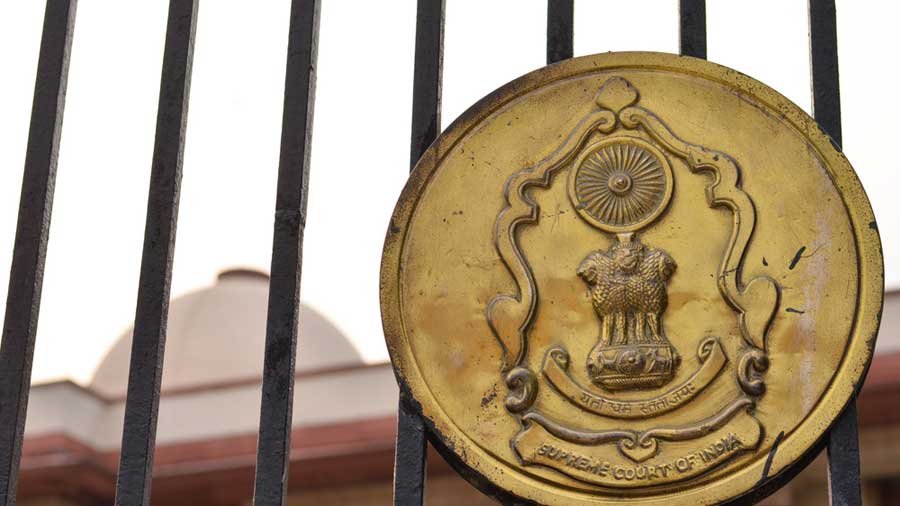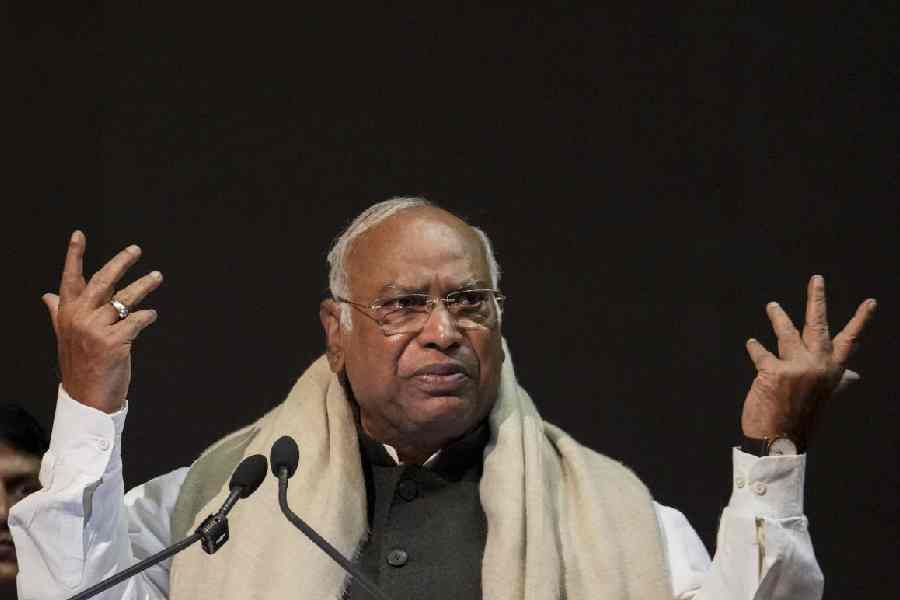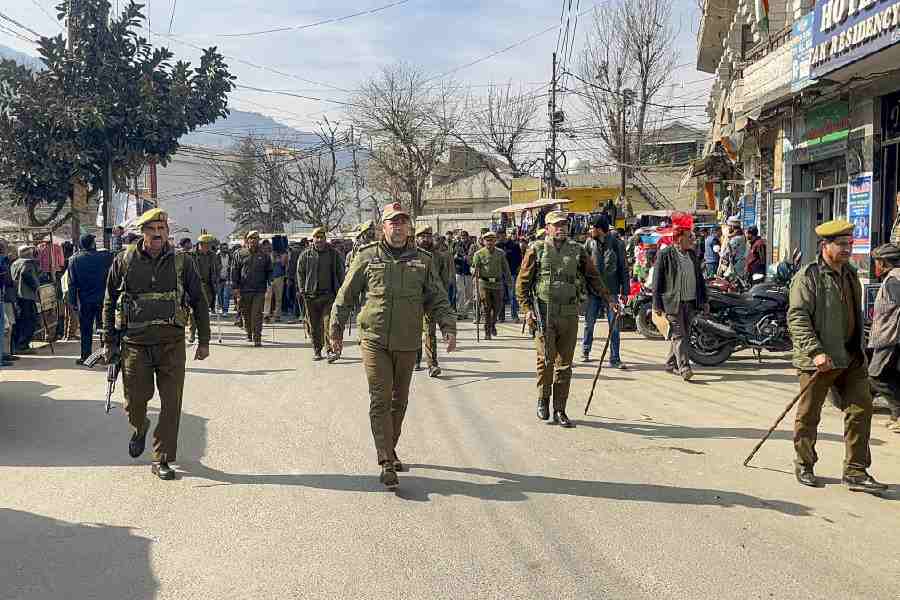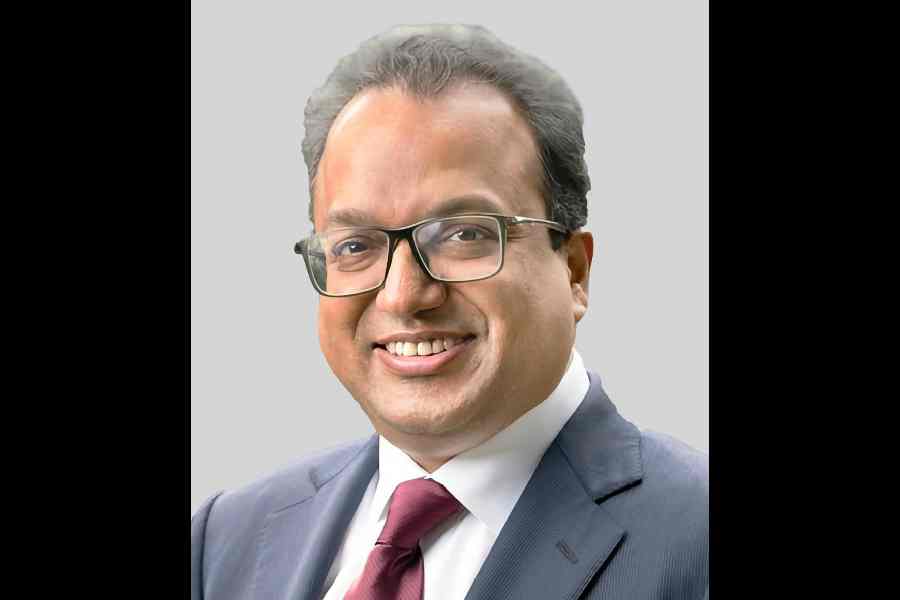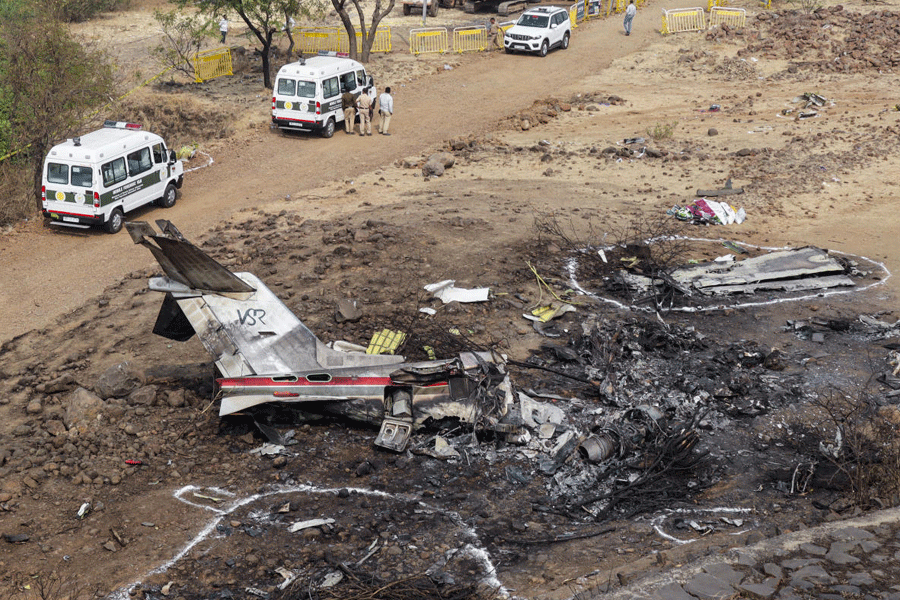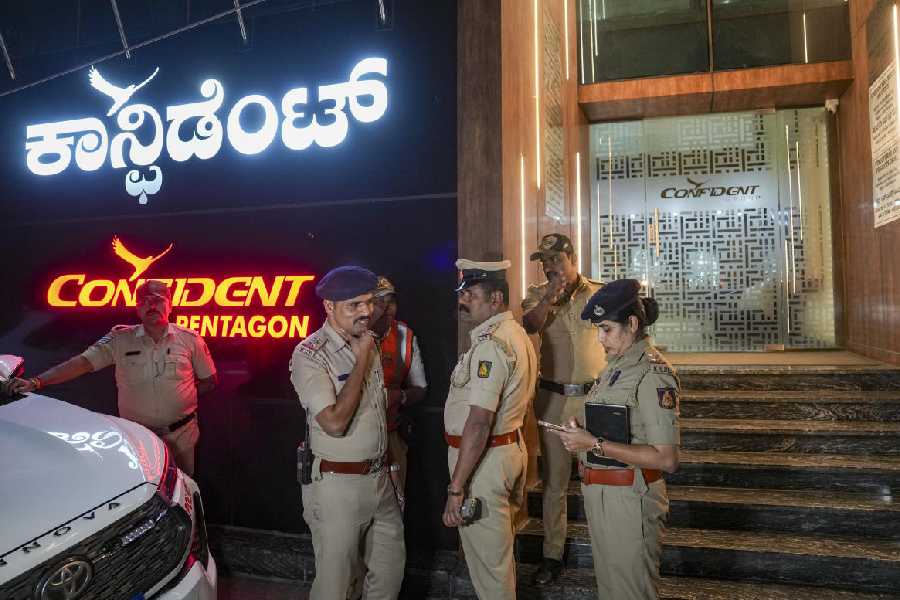Advocate Lekshmana Chandra Victoria Gowri was sworn in as a judge of Madras High Court on Tuesday around 10.38am, even as a special bench of the Supreme Court was in the midst of hearing a petition seeking that the collegium’s recommendation on her be quashed on account of her alleged hate speeches against Muslims and Christians.
The apex court eventually dismissed the petition.
A bench of Justice Sanjiv Khanna and Justice B.R. Gavai, who will both be Chief Justices of India in the distant future, said it would be wrong to assume that the collegium did not possess the alleged material relating to the hate speeches. Her political background cannot be a ground for quashing her appointment, they added.
While the apex court bench started hearing the matter from 10.25am, after initially listing it at 9.15am, Madras High Court acting Chief Justice T. Raja administered the oath to Gowri around 10.48am, when the court was still dealing with the issue.
The Supreme Court bench cited instances of eminent jurist Justice Krishna Iyer being sworn in as a judge of Kerala High Court despite being a member of the communist party.
Senior advocates Raju Ramachandran and Anand Grover, appearing for the petitioners, argued that they were not opposed to her political background, but were concerned with her “hate speeches” which they said were antithetical to the Constitution, particularly Article 21 relating to life and personal liberty.
Ramachandran referred to the oral observations made by Chief Justice of India D.Y. Chandrachud on Monday while agreeing to an early listing, wherein he had observed: “We have seen the plea and we have read it. There are certain developments which have taken place. The collegium has taken cognisance of what came to our notice after we formulated our recommendations on the basis of the recommendation of the Chief Justice of the collegium of High Court of Madras. Since we have taken cognisance of certain developments, which have taken place thereafter, we can list this petition tomorrow morning. I will constitute a bench.”
The bench asked on Tuesday: “What you are suggesting is that this court on the judicial side should ask the collegium to reconsider? We can’t do it. We have a fairly robust scrutiny process. Let us not interfere with it.”
Ramachandran said Gowri had a mindset which was not in consonance with the ideals of the Constitution and ran contrary to Article 21. “Thus, she is unfit to take oath. Oath speaks of true faith and allegiance,” he said.
The bench said: “People with political background have taken oath as Supreme Court and high court judges. We have seen her 2018 utterances also.”
Justice Gavai said: “There have been many instances when additional judges are not made permanent when performance was not satisfactory…. Many times before collegium recommendations reach Delhi, letters of complaint reach us.”
The bench observed: “These recommendations were made sometime about 21 days ago. You yourself are saying whatever material you had you made a representation to the collegium members on February 1. It was in the public domain. We are on the 7th today. If any member of the collegium had any reservation on anything, they would have taken it up.”
Justice Khanna said: “It is unprecedented for a court to direct the collegium to reconsider its recommendation.” Justice Gavai said: “When a collegium takes a decision, it also takes the opinion of the consultee judges who are from that particular high court and you cannot assume that the judges who are from that particular high court are not aware about these things…”
Further, Justice Gavai noted that in the present case, Gowri is being appointed as additional judge and there is no reason why the collegium cannot refuse to confirm her as a permanent judge if her conduct is not true to the oath. “If it is found that she has not discharged the duties as per oath, is the collegium not entitled to take a view of that? There have been instances where people have not been confirmed,” Justice Gavai said.
Under the present appointment rules of high court judges, a person is first appointed as an additional judge for a period of two years. Only upon satisfactory conduct, the additional judge is recommended for elevation as a permanent judge “There are consultee judges from the state high court. Both of them are local judges who have worked in the state of Tamil Nadu. We have to presume that they had knowledge of the candidates,” the bench said.
It was referring to the two Supreme Court judges, Justices V. Ramasubramanian and M.M. Sundresh, both from Tamil Nadu, whose opinion was elicited before elevating Gowri. Referring to the petitioners’ contention that Gowri was aligned with the ruling BJP, Justice Khanna said: “There have been cases where people with political background who have taken oath as judge of the Supreme Court and high court…” He also referred to the instance of Justice Krishna Iyer being sworn in a judge despite his communist background.
“I also had a political background. I have been a judge for the last 20 years. I don’t think my political views at any point of time interfered or influenced my decisions,” Justice Gavai said. Senior advocate Anand Grover said the high court judges would be aware only of a candidate’s antecedents in terms of the person’s conduct, but would not be aware of what a person says on YouTube or other interviews which were not placed before the collegium.
He argued that this is one of the rare cases where the collegium might not be aware of the materials against Gowri, prompting Justice Gavai to ask: “What rare instances? Someone will pull out some information and say that it was not before the collegium! Such rare cases will keep coming then and now. We can’t be entering into all these.”
Justice Khanna said that on eligibility there could be a challenge, but the court could not go into the suitability of a candidate at this stage. “Otherwise, the whole process will become haywire,” the bench said while refusing to interfere.
The three joint petitioners — Anna Mathew, Sudha Ramalingam and D. Nagasaila — had sought the disqualification of Gowri on the ground that her hate speeches and alleged proximity to the BJP disqualified her under Article 217(2)(b) “from dispensing justice, without fear or favour, and affection or ill-will”.
The petition had listed the following allegations against Gowri:
- In one of her interviews, captioned “More Threat to National Security & Peace? Jihad or Christian Missionary? Answers Victoria Gowri uploaded on February 27, 2018 (now not available for public viewing on YouTube), Gowri said: “Like Islam is green terror, Christianity is white terror.” She further stated: “Christian groups are more dangerous than Islam groups. Both are equally dangerous in the context of love jihad.”
- In another interview, titled “Cultural Genocide by Christian Missionaries in Bharat – Victoria Gowri, uploaded on June 5, 2018, Gowri referred to the “nefarious activity of the Roman Catholics” and declared that “Bharatanatyam should not be danced for Christian songs”.
“Respondent No. 4’s affiliation to the ruling Bharatiya Janata Party (BJP) is well known. She has been the National General Secretary of the Bharatiya Mahila Morcha, the women’s wing of the BJP...,” the petition said.

